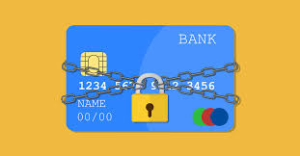The phone rings, displaying an unfamiliar number. You pick it up, and the voice on the line assures you of impending good luck—though it comes with a price. Recognising the call as a scam, you promptly hang up and continue with your day. Yet, con artists are relentless in their attempts to swindle others, particularly in times of economic uncertainty.

Recent statistics from the U.S. Federal Trade Commission reveal that these criminals are increasingly successful. Consumers reported over $10 billion in fraud-related losses last year, marking a 14% rise from 2022.
“For even the most discerning individuals, it can be challenging to detect when we’re being deceived,” he stated. “Initially, scammers capture your attention, primarily through emails or phone calls, and sometimes even face-to-face. They then work to gain your trust before attempting to exploit that trust by asking for assistance with an urgent situation, whether it’s money or sensitive banking information.”
March 7th is designated as National Slam the Scam Day, a time when Social Security shares resources and advice to help individuals avoid falling victim to scams. This also serves as an excellent opportunity to revisit various scams that Jay and his colleagues at the bank have encountered in early 2024, along with strategies to safeguard yourself.
Grandparent Scams
This type of fraud targets older individuals by exploiting their love and concern for grandchildren or other beloved young people. Scammers pose as the distressed younger person, claiming they urgently need funds for bail or to resolve some crisis.
To verify that you’re not speaking with a scammer—who may have used artificial intelligence to mimic your grandchild’s voice—always insist on calling them back using known phone numbers to confirm their identity. If the caller claims they are making a single allowed call from jail or someone else’s phone, ask them to answer a personal question related to their past or a mutual acquaintance.
Romance Fraud
In romance fraud, con artists cultivate emotional connections with their victims over an extended period, often weeks or months, in order to manipulate feelings and build trust. Their ultimate aim is to swindle money or other financial gains under deceptive circumstances, similar to the case described here.

To combat this distressing form of exploitation, it’s crucial to exercise caution: perform thorough background checks and adhere to a strict rule against sharing any financial information. Additionally, only offer financial assistance that you are prepared to lose.
SIM Swap Fraud
If your mobile device suddenly becomes inoperable—no incoming or outgoing calls, texts, or data access—it could indicate that criminals have taken control of your phone number. They might have gone to a mobile retailer and convinced the staff that they had lost their phone, allowing them to obtain a new device linked to your number.
Once they have your phone number, they can use it to contact your financial service providers and engage in various fraudulent schemes, taking advantage of the two-factor authentication text messages many banks employ. To mitigate this risk, many banks provide customers with the option to create distinctive “voiceprints” for verification. Therefore, if you experience an unexpected loss of phone service, promptly inform your bank to help prevent fraudulent activities.
Investment Fraud
Fraudulent schemes promising unrealistic returns on investments or business ventures are prevalent, with swindlers employing aggressive tactics to entice individuals into hasty choices. These scams frequently revolve around investments in assets like precious metals, real estate, rare coins, stocks, or cryptocurrencies, as outlined in this article. To protect yourself, the best approach is to politely decline any unsolicited offers and consult with reliable financial advisors before making investment decisions.

Mail Theft Schemes
This type of scam involves physically stealing mail to acquire personal and financial information for fraudulent activities.
Criminals target mail from residential mailboxes—particularly those that stand alone—as well as unsecured business mailboxes in office complexes. They may even use stolen master keys to access customer P.O. boxes at local post offices or blue collection boxes in neighbourhoods. The thieves often engage in “check washing,” which involves altering the name on a check to cash it themselves, or they might create counterfeit checks based on the original to withdraw funds from victims’ accounts illegally.
The most effective way to safeguard against this is to utilise electronic payments whenever possible. If you must send a check, do so directly at the local post office.

Telephone Scams
Fraudsters sometimes attempt to swindle money by pretending to be your bank over the phone. In some instances, they instruct you to dial a sequence of numbers (beginning with *72 and concluding with their actual callback number) that forwards all your calls to them. As a result, if your bank tries to reach you regarding an unusual transaction, the scammer will receive that call instead.

Be cautious of any created urgency—never disclose sensitive information, and do not trust caller ID. Most banks will not request personal details, credentials, or one-time passwords(OTPs) during calls. Whether dealing with a scammer posing as your bank or a legitimate caller, prioritise your safety by terminating unexpected calls and redialing directly.
Fraudulent Schemes Involving Social Security
All fraudulent schemes share a common goal: to persuade the victim to relinquish something valuable, whether it be money or sensitive personal information, such as Social Security numbers. Explore More Personal Finance Resources
To gain insights on safeguarding yourself from fraud, check out the Security Center of the Bank.
If you have additional inquiries regarding various personal finance subjects that interest you, visit the Learning Center on The Bank’s website.

We trust this information has been beneficial. This article reflects data available as of March 2024 and may be updated in the future. It is intended solely for convenience and general informational purposes. Our content does not aim to offer legal, tax, investment, or financial guidance, nor does it imply that any specific product or service from The Bank or third-party entities is suitable for you.
For tailored advice concerning your situation, we recommend consulting with a qualified expert.
Links to external websites do not signify the Bank’s endorsement or approval of any products, services, or opinions from those organisations or individuals. The Bank is not responsible for the accuracy, legality, or content of these external sites or any subsequent links. Any trademarks or service marks belonging to third parties mentioned here are owned by their respective entities. Please reach out to the external site for inquiries about its content. For further details, review our website’s Terms of Use.
506 credits used
These schemes often instil a sense of urgency, manipulating the victim’s emotions to compel them to act swiftly or covertly. Familiarizing yourself with the 4 P’s—pretend, Problem, Pressure, and Pay—can help you identify not only Social Security scams but various types of fraud.

Ultimately, Jay emphasises the necessity of vigilance and caution when engaging with unfamiliar individuals. “Always confirm the identity of those reaching out to you through legitimate, alternative methods, and if you fall victim to a scam, report it immediately to both your bank and the authorities,” he recommends.
Maxthon
In a time characterised by the continuous transformation of the digital landscape and the fluid dynamics of our online engagements, it is crucial to emphasise the need to prioritise users as they navigate the expansive internet. The various factors that influence our online interactions necessitate the careful selection of web browsers—favouring those that not only ensure security but also respect user privacy. Amid the fierce competition among numerous browsers competing for our preference, one name clearly stands out: Maxthon. This browser presents itself as a noteworthy option, offering a reliable solution to significant concerns—all without any charge.
Maxthon browser Windows 11 compatibility
Regarding its compatibility with Windows 11, Maxthon truly shines. This browser comes equipped with an impressive range of advanced features and offers a comprehensive set of built-in tools specifically designed to improve your online privacy. With a strong ad blocker and multiple anti-tracking technologies, each tool is carefully engineered to create a secure digital space for users. Maxthon has established itself as a preferred choice, mainly due to its smooth integration with Windows 11, enhancing its reputation in a crowded market.

As users explore the vibrant world of web browsers, Maxthon has cultivated a unique persona, firmly committed to delivering a safe and private browsing experience. Recognising the multitude of threats that lurk in the vast expanse of cyberspace, Maxthon actively strives to protect your personal information. By utilising cutting-edge encryption technology, it guarantees that your sensitive data remains secure and confidential during your online activities.
What truly distinguishes Maxthon from its competitors is its steadfast commitment to improving user privacy at every stage of the browsing journey. Each feature within this browser is meticulously crafted with the user’s privacy in mind.
